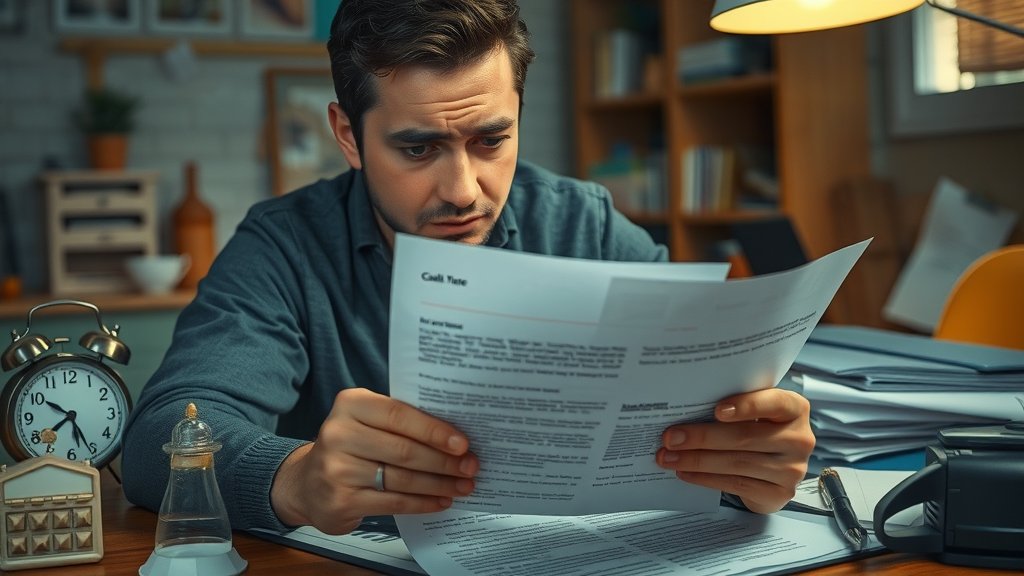Did you know? Every year, millions of car accident victims don’t receive the full compensation they deserve—either from not knowing their legal rights or underestimating the value of their claims. If you’ve been in a car accident, understanding car accident compensation could significantly impact your financial recovery and peace of mind. In this comprehensive guide, you'll uncover actionable insights for maximizing your compensation, avoiding common pitfalls, and confidently navigating every step of your accident claim.
Startling Facts: The Urgency of Car Accident Compensation
"Every year, millions are unaware of their full car accident compensation rights—don't join that statistic."

The aftermath of a car accident is often chaotic, but what you do next can define your financial and emotional recovery. Car accident compensation isn’t just about fixing your vehicle; it covers lost wages, medical expenses, and even pain and suffering. Yet, many accident victims rush to accept low settlement offers or miss critical steps to preserve their rights under accident law. With insurance company tactics growing more sophisticated, now is the time for accident victims to be informed and ready to claim what they're truly entitled to after an auto accident.
The numbers are staggering: Annually, over six million car accidents occur in the US alone, leading to billions in accident compensation paid out to those who file a claim. However, countless victims still walk away with far less than they deserve, missing economic damages, property damage, or even punitive damages. This guide clears away the confusion, helping you understand the critical steps and information every accident victim needs to secure the compensation they deserve.
What You'll Learn About Car Accident Compensation
- Comprehensive understanding of car accident compensation and accident claims
- Key steps to filing a car accident claim
- How insurance companies impact your compensation
- Differences between economic and punitive damages
- Strategies to maximize the compensation you deserve
- Expert insights on dealing with accident attorneys and car accident lawyers
Understanding Car Accident Compensation: Your Legal Rights Explained
What is Car Accident Compensation?

Car accident compensation refers to the financial recovery you’re entitled to after being involved in a car accident, based on the damages and losses you’ve sustained. Compensation covers more than just vehicle repairs—it includes medical treatment costs, lost wages, property damage, and in serious cases, non-economic damages like pain and suffering. Accident compensation aims to restore accident victims to the financial position they were in before the crash, making them whole under accident law. Whether you’re filing a claim with your insurance company or pursuing an injury claim against an at-fault driver, understanding the scope of compensation is crucial. Insurance companies often propose initial settlement offers that fall short, so knowing the true value of your claim helps you negotiate or challenge unfair practices with the support of a skilled accident lawyer.
The need for fair compensation after a car crash becomes even more apparent when you consider potential long-term impacts: mounting medical bills, ongoing rehabilitation, lost earnings, and emotional trauma, particularly in severe personal injury cases. Because every auto accident is different, evaluating your unique circumstances and working with an experienced accident attorney is often the key to ensuring you receive every dollar you're entitled to under car accident compensation rules.
The Legal Basis for Accident Compensation After Car Accidents
Car accident compensation is governed by a blend of state and federal accident law, which determines liability, fault, and the types of damages available. Most car accidents are assessed on the principle of negligence—if another party’s actions or omissions caused your injury or property damage, they may be required by law to compensate you. Accident claims can be made directly against a negligent driver, or through your own insurance company under certain policies like uninsured motorist coverage. The legal standards for fault and compensation can differ based on your state's laws, including comparative fault rules that may impact how much you receive if you share responsibility for the auto accident.
Your rights as an accident victim are further protected by various statutes, including statutes of limitations dictating how long you have to file an accident claim. Failure to act within these limits could result in forfeiting your right to car accident compensation altogether. Consulting a car accident attorney can clarify your status under accident law, give you a roadmap for evidence gathering, and help safeguard your claim against insurer tactics intended to minimize payouts. In every case, understanding the legal framework around personal injury and accident compensation empowers victims to claim their full due.
Overview of Accident Law and Injury Claims
Accident law is a specialized branch of personal injury law that deals with determining fault, liability, and the scope of recoverable damages after a car accident. Filing an injury claim typically involves demonstrating that the other party’s negligence caused you harm. This entails collecting evidence, such as police reports, photos of vehicle damage, medical records, and witness statements. Successful accident claims often hinge on proving the extent of your economic damages (like medical expenses and lost wages) as well as non-economic damages (including pain, suffering, and emotional distress).
Insurance companies and accident lawyers play pivotal roles throughout the process: while insurers may attempt to limit payouts, qualified accident attorneys work to document every loss and advocate for the largest possible settlement under accident law. Whether you’re dealing with a car accident lawyer, an adjuster, or in court, a strong understanding of accident law helps maximize the amount you receive for your injury claim. Always be proactive—gather evidence, maintain all documentation, and seek legal counsel when necessary to protect your right to full and fair compensation.
Types of Car Accident Compensation You Can Claim
Economic Damages: Medical Treatment, Property Damage, and Vehicle Damage
| Damage Type | Description | Common Examples |
|---|---|---|
| Medical Treatment | Costs for injury treatment | Hospital bills, rehab |
| Property Damage | Replacement/repair costs | Vehicle damage, car rental |
| Lost Earnings | Income lost due to injury | Wages, missed work |

Economic damages are the backbone of any car accident compensation claim—these are the actual, out-of-pocket losses you incur from the auto accident. Medical treatment is often the largest component, encompassing hospital visits, surgeries, rehabilitation, prescription medications, and ongoing therapy. Without careful record-keeping, accident victims may unknowingly leave thousands of dollars on the table. Remember, insurance companies focus on minimizing these expenses, so detailed documentation of your medical bills and related costs is critical to getting the compensation you deserve.
Property damage is another major category—repairing or replacing your vehicle after car accidents, paying for rental cars, and covering other personal property damaged in the crash. Lost earnings due to missed workdays, reduced ability to work, or long-term disability can quickly exceed property and medical damages, highlighting the importance of capturing every economic impact. Experts recommend keeping all receipts, pay stubs, and communication with your employer to substantiate lost wages. The more thorough your documentation, the stronger your accident claim will be when negotiating with insurers or accident attorneys.
Non-Economic and Punitive Damages in Car Accident Claims
Beyond tangible economic damages, car accident compensation can also include non-economic and punitive damages. Non-economic damages cover intangible losses such as emotional distress, anxiety, sleep disturbances, and diminished quality of life. Insurance companies often resist paying for these damages since they’re subjective and harder to quantify, but experienced accident lawyers are skilled at articulating these losses in your claim. The law recognizes that not all harm from an auto accident is financial; your mental and emotional well-being matters, especially in severe personal injury incidents.
Punitive damages, while less common, are meant to punish egregious behavior—such as reckless driving or willful misconduct. Their goal is not just to compensate the accident victim but to deter similar dangerous conduct in the future. Courts may award punitive damages in addition to economic damages and non-economic damages when the defendant's conduct was particularly harmful. It’s crucial to work with a qualified accident attorney or car accident lawyer to assess if punitive damages apply in your accident claim, as these awards can dramatically increase the settlement.
Pain and Suffering in Personal Injury Cases

When seeking car accident compensation, pain and suffering are among the most frequently misunderstood aspects of personal injury claims. These damages recognize the physical discomfort, emotional trauma, and lifestyle changes resulting from car accidents. Unlike economic damages, there are no receipts or invoices; instead, pain and suffering is assessed based on medical reports, diary entries, expert testimony, and the overall effect of the injury on your day-to-day life. Many accident victims fail to claim this crucial component, leaving substantial sums uncollected. Accident attorneys and car accident lawyers are skilled at quantifying pain and suffering and advocating forcefully for these damages in your accident claim, making them vital partners in your recovery journey.
When Are Punitive Damages Awarded in Accident Compensation?
Punitive damages are typically awarded when the negligent party’s behavior goes far beyond ordinary carelessness and demonstrates reckless indifference or intentional harm—such as in hit-and-run auto accidents, extreme DUI incidents, or flagrant violation of traffic laws. Unlike economic losses or property damage, punitive damages are not tied directly to your financial losses but serve as both punishment and warning. These damages are awarded less often, but when they apply, they can multiply the overall amount of your car accident compensation. If you are unsure whether your case qualifies, consult with an experienced accident lawyer or car accident attorney who can review the details under accident law and maximize your claim.
Step-by-Step Guide to Filing a Car Accident Compensation Claim
- Immediate actions following an auto accident
- Gathering evidence for your accident claim
- Notifying your insurance company
- Documenting medical treatment and property damage
- Consulting with an accident attorney or car accident lawyer

Knowing how to file a claim after a car accident is essential to securing full compensation. Your first priority should always be safety—check for injuries, move to safety, and call law enforcement to the scene. Once safe, collect evidence: photographs of all vehicles, accident location, visible injuries, and the other driver’s license and insurance information. This evidence will serve as the foundation for your accident claim, proving both damages and liability.
Promptly notify your insurance company of the car accident, providing accurate information and avoiding statements that could be misconstrued or used to minimize your claim. Carefully document all medical treatment and expenses—from ambulance rides to rehabilitation sessions and every bill in between. Consult with an accident attorney or car accident lawyer early, especially if your injuries are severe or the circumstances complex. Their expertise in accident law and personal injury claim strategy can greatly increase the compensation you receive. Avoid delays; most states enforce a strict statute of limitations for accident claims.
How Insurance Companies Evaluate Your Car Accident Compensation
Dealing With Insurance Company Adjusters

Insurance companies are businesses first—they aim to close accident claims quickly and at the lowest possible cost. Adjusters will review your documentation, ask probing questions, and may use strategies to challenge or reduce your claim. Always remember: their initial settlement offer is rarely their best. To level the playing field, prepare carefully: keep all correspondence in writing, document every conversation, and provide complete evidence of your economic damages, property damage, and medical expenses. This professionalism signals you are informed and serious about your car accident compensation claim.
If you receive a settlement offer that seems insufficient, do not feel pressured to accept immediately. Request a detailed breakdown of how they calculated compensation and push back if key items are missing. Consulting with an accident attorney or car accident lawyer can further strengthen your negotiations by offering experience, leverage, and insight into what constitutes fair compensation after an auto accident. Remember, insurance company adjusters are trained negotiators—it pays for you to be ready.
The Role of Accident Lawyers and Car Accident Lawyers
Accident lawyers and car accident attorneys can make a critical difference in the outcome of your compensation claim. Their role extends from gathering crucial evidence and documenting damages to negotiating assertively with insurers and, if needed, pursuing litigation under accident law. Experienced attorneys know how to present medical treatment details, lost wages, and other economic damages for maximum impact, often identifying losses or liabilities you might overlook.
Many accident victims try to handle their claims alone, but studies show that claimants represented by a qualified accident lawyer or car accident lawyer typically receive two to three times more compensation than those who go it alone. Legal professionals also help shield you from common insurance tactics—such as stalling, cherry-picking statements, or denying certain damages—so your focus stays on physical and financial recovery, not on bureaucratic struggles or stressful negotiations.
How to Avoid Common Traps in Car Accident Claims
"Insurers may seek quick settlements that don’t reflect the full scope of accident compensation—always know your rights."
Quick settlements often come with hidden downsides: you may forfeit your right to further compensation for future medical treatment, or inadvertently accept a payout far below what your injuries and losses warrant. Other common traps include missing key deadlines for filing a claim, providing incomplete documentation, or giving statements that insurers later use to dispute fault or limit payouts. Be vigilant: review every settlement offer with a critical eye and never sign anything without consulting a qualified accident attorney. Record every step, and keep meticulous notes on all interactions—these details could make or break your car accident compensation claim.
Maximizing Car Accident Compensation: Effective Strategies
- Retaining experienced accident attorneys
- Thorough documentation of property damage and medical expenses
- Understanding the value of non-economic damages
- Negotiating assertively with insurance companies
- Pursuing litigation when appropriate

To achieve the compensation you deserve after a car crash, adopting the right strategy is essential. The first step is to engage with a competent accident lawyer or car accident attorney, especially if you anticipate substantial personal injury or complicated fault determinations. Their hands-on knowledge of accident law, evaluation of economic damages, and negotiation skill set you up for success from the outset. Additionally, be relentless with documentation: gather every receipt, record, and photo relating to property damage, medical expenses, and lost wages, ensuring you have irrefutable evidence for your accident claim.
Don't underestimate the value of your pain and suffering or other non-economic damages; many victims fail to report or quantify these critical losses. When insurance companies make an offer, respond with confidence—highlight factual discrepancies, ask questions, and negotiate using data and legal expertise. If negotiations falter or stall, consider litigation as your next move. A credible threat to pursue a personal injury claim in court often prompts insurers to increase their settlement offers. With these strategies—and support from experienced accident attorneys—you’re positioned to maximize every dollar of your car accident compensation.
Common Mistakes That Reduce Car Accident Compensation
- Delaying your accident claim
- Settling prematurely with the insurance company
- Insufficient documentation of economic damages
- Failing to hire a qualified accident attorney

Avoiding mistakes is just as important as taking proactive steps. One of the biggest pitfalls is delaying your claim—waiting too long may cause you to miss the statute of limitations, permanently barring recovery. Settling too early, without understanding your full injuries or future needs, often results in accepting an inadequate sum with no option for additional relief. Poor documentation can also doom your case; without clear records of medical treatment, lost wages, or property damage, insurers may dispute or undervalue your claim.
Finally, many victims underestimate the complexity of accident law and accident compensation, attempting to handle negotiations without hiring a qualified accident attorney. This increases the risk of falling for common insurance company traps and losing out on non-economic damages like pain and suffering. By learning from these mistakes, you dramatically improve your prospects for a successful and complete recovery.
People Also Ask About Car Accident Compensation
How much compensation can you get from a car crash?
Compensation varies based on the severity of the accident, extent of injuries, insurance coverage, and fault. Amounts range from a few thousand dollars for minor accidents to six or seven figures for severe cases involving extensive medical treatment and personal injury.
How much are most car accident settlements?
Most car accident settlements in the US typically range from $3,000 for minor incidents up to $75,000 or more for significant injuries or property damage, depending on the individual case and accident law in the relevant state.
What is the average payout for compensation?
The average payout for car accident compensation can vary, but national averages suggest between $15,000 to $30,000 for bodily injury claims. Factors include fault, economic damages, non-economic damages, and legal representation.
How much money should you get if you get hit by a car?
If you get hit by a car, compensation depends on injuries, lost wages, medical care, and comparative fault. Consult with an accident attorney or car accident lawyer for a case-specific estimate.
FAQs about Car Accident Compensation, Accident Claims, and Accident Law
- Can you claim car accident compensation for emotional distress? Yes, accident victims may claim compensation for emotional distress as part of their non-economic damages. These losses are typically proven through medical records and personal testimony.
- How long do you have to file an accident claim? The time limit—known as the statute of limitations—varies by state, usually ranging from one to three years. Missing this deadline may invalidate your compensation claim.
- What if the other driver is uninsured? If the at-fault driver has no insurance, you may file a claim through your uninsured motorist policy or pursue legal action directly against the individual, depending on accident law in your state.
- How do economic damages differ from punitive damages? Economic damages cover quantifiable financial losses (like medical bills and lost wages), while punitive damages aim to punish severe misconduct and deter reckless behavior.
- Is hiring an accident lawyer necessary for a car accident claim? While not required, hiring an experienced accident lawyer or car accident attorney often increases your total compensation and improves your chances of success, especially for complex or high-value claims.
Key Takeaways: Achieving the Compensation You Deserve
- Always understand the full scope of your car accident compensation rights
- Document all economic damages and non-economic damages
- Consult accident attorneys or car accident lawyers for optimal results
- Be vigilant with insurance company negotiations

Empower Yourself: Next Steps for Car Accident Compensation
"Knowledge is power when it comes to car accident compensation—every step you take improves your chances of a successful claim."
Learn more: visit pugetsoundinjurylaw.com/
Understanding car accident compensation is crucial for ensuring you receive the full benefits you’re entitled to after an accident. The article “How Car Accident Compensation Works in Texas” provides a detailed overview of the state’s insurance requirements and compensation processes, including the 30/60/25 liability insurance mandate and the modified comparative fault rule, which affects compensation based on your percentage of fault. (smithandhassler.com)
Similarly, “How Car Accident Compensation Works in New York” offers insights into New York’s no-fault insurance system, mandatory coverage requirements, and the state’s approach to compensation, including the serious injury threshold for pursuing additional damages. (lawyers.law.com)
These resources provide valuable information on state-specific laws and procedures, helping you navigate the complexities of car accident compensation effectively.
 Add Row
Add Row  Add
Add 




Write A Comment